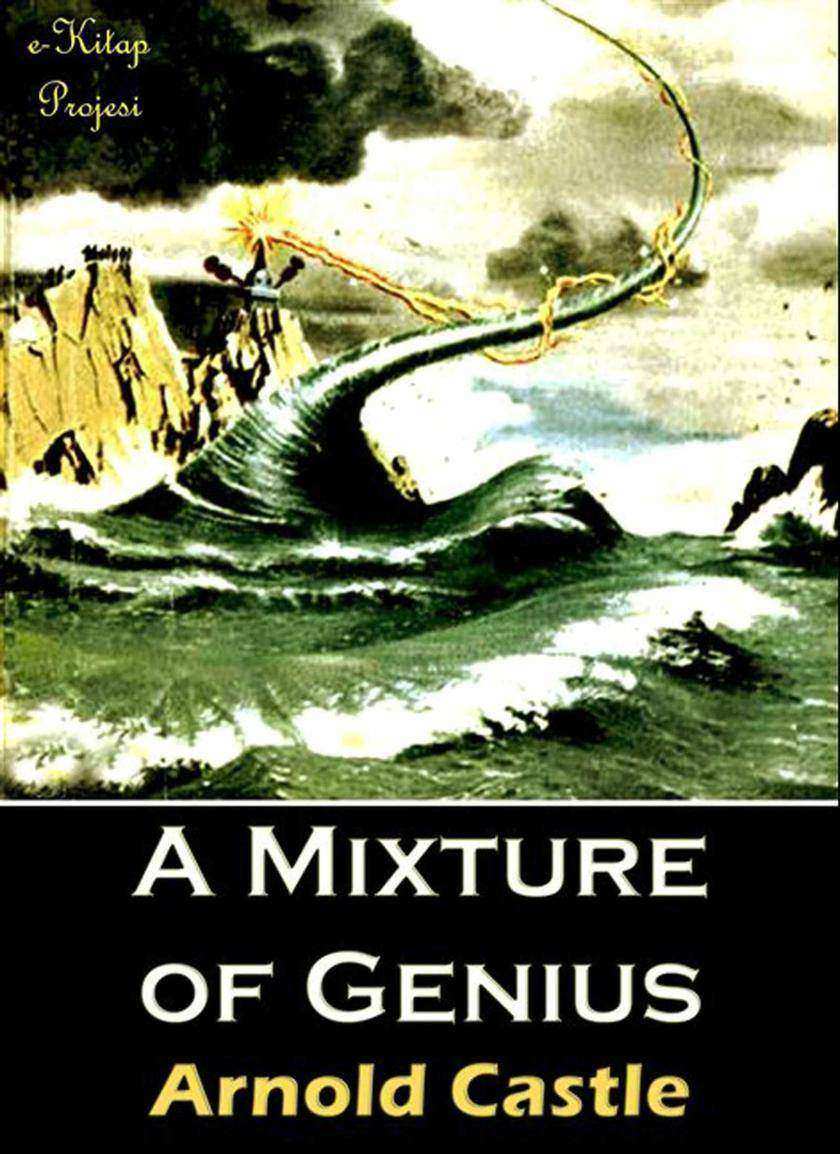
A Mixture of Genius: Illustrated
¥8.09
Ez Fabius Petronius Secundus római legionárius és centurió – valamint hadvezére, Scipio Aemilianus – felemelkedésének t?rténete: a makedónok elleni els? csatájától, amely megpecsételi Nagy Sándor birodalmának sorsát, az ?szak-Afrikában vívott, mindenre kiterjed? háborúig és Karthágó ostromáig. Scipio sikerei csodálatot és tiszteletet váltanak ki, de egyben kapzsiságot és féltékenységet is fialnak – legszorosabb sz?vetségeseit?l legelkeseredettebb ellenségeiig. ?s ott van még Julia is, a Caesar családból – a kiszámíthatatlan lány, aki Scipiót szereti, de annak vetélytársával, Paulusszal jegyzeték el –, aki csúf viszály kiváltója lesz. Végül Scipiónak egyetlen kérdésre kell csak válaszolnia: mi mindent képes feláldozni a látomásért, amit Rómáról alkotott?
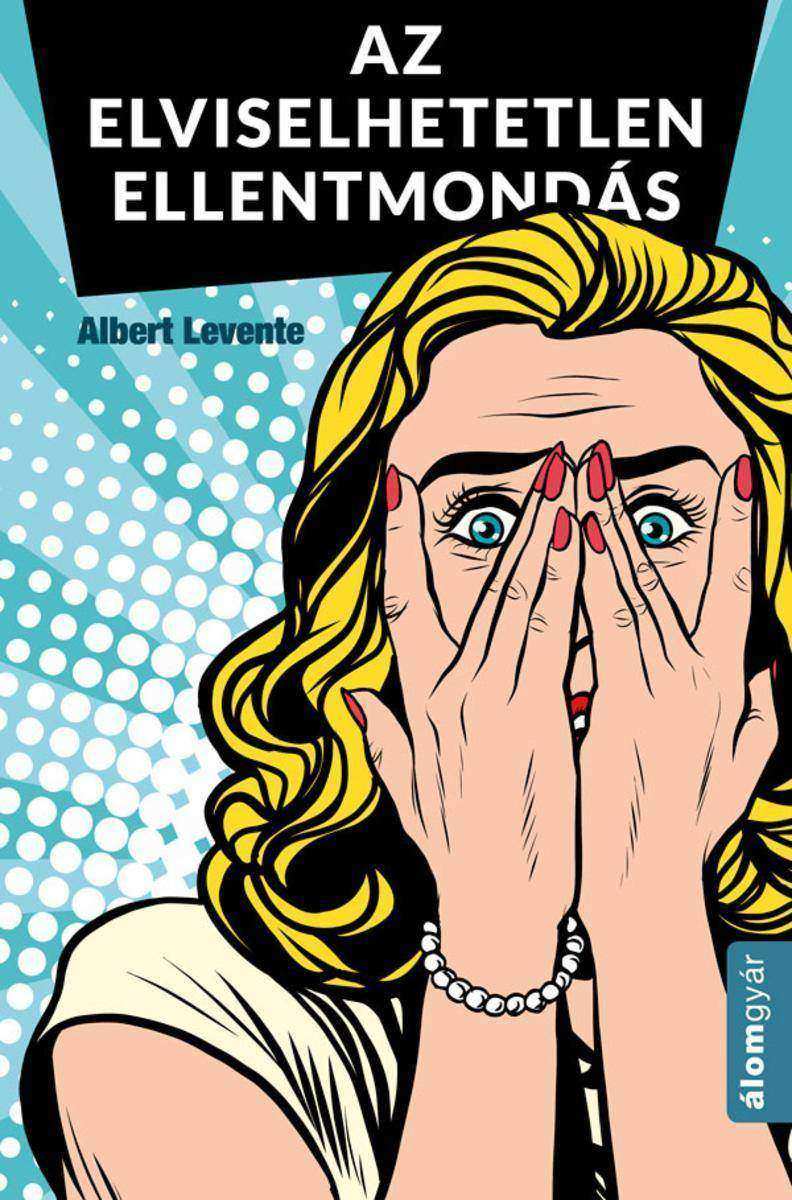
Az elviselhetetlen ellentmondás
¥58.29
A n?k a világ minden táján felfedezik, hogy kül?n?s er?vel rendelkeznek. Ujjuk egyetlen érintésével képesek sz?rny? fájdalmat okozni, s?t: gyilkolni is.A férfiak pedig ráj?nnek, hogy kicsúszott a kezükb?l az irányítás...Elérkezett a Lányok Napja, de vajon hogyan fog véget érni?A hatalom az elmúlt évek legnagyobb k?nyvsikereinek egyike, megjelenése óta megtalálható a legfontosabb sikerlistákon, 15 héten át szerepelt a New York Times mérvadó listáján. Már t?bb, mit két tucat nyelvre lefordították, rendkívüli aktualitásával, melyben egy új, n?k irányította j?v?t vizionál, jelent?s visszhangot váltott ki az irodalmi életben, a k?zéletben, a sajtóban és a politikában. Sorra kapja a fontos elismeréseket, a New York Times az év tíz legjobb k?nyve k?zé választotta, ahogyan Barack Obama is ajánlotta, mint az év egyik legfontosabb k?nyvét. "Provokatív, korszak-meghatározó thriller"-?Guardian "Az éhez?k viadala?és?A szolgálólány meséje?– vegyítve." -?Cosmopolitan "T?kéletes. Okos, ijeszt?, mulatságos."-?Daily Telegraph "Magával ragadó. Minden n?nek el kellene olvasni." -?The Times "Dermeszt?. Egy irodalmi bomba." -?Financial Times "Sokkoló." -?Observer "Felvillanyoz, sokkol, bámulatba ejt! ?s mélyen elgondolkoztat." - Margaret?Atwood ?"Dermeszt? mesterm?." - Sarah Perry ?"A szolgálólány meséje?a?Holtodiglan?generációjához." - Grazia
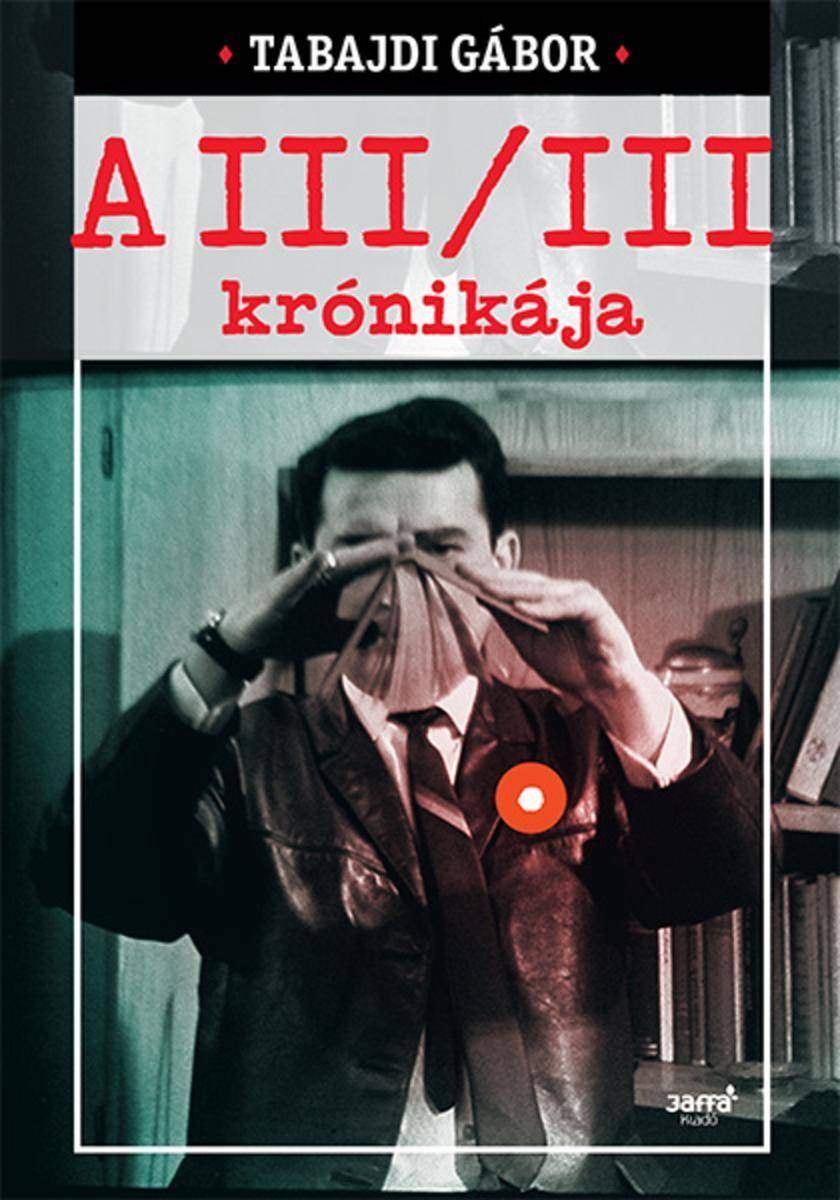
A III/III krónikája
¥71.69
BOJG?S AZ VIL?GBA M?G M?S MIND?NF?LE VAGYIS E ZA NYOTZADIK K?NYVEM, DE ?GY IS VAGYOK ?N M?N EVVEL MINT AKINEK A NY?TZADIK GYERM?KE SZ?LETIK, HOGY ASZONDI EZ L?GY?N A ZUT?S? IRTAM ?N MAGAM AZ SALY?T KEZEMMEL G?RE G?BOR BIR? ?R EBB?L A K?NYVB?L EZ M?N A NY?TZADIK ERESZT?S MER M?- GEN ELFOGYOTT NYOMTATT?K EBBE A ZESZTEND?BE DANTE ?R K?NYVESP?TZ?RUL KAPKODHAT? M?G MIND?N K?NYVES B?TBUL

Cibola meghódítása
¥71.29
THE MAN IN THE MOON.THE Man in the MoonCame tumbling down,And asked his way to Norwich;They told him south,And he burnt his mouthWith eating cold pease-porridge. TO MARKET, TO MARKET.TO market, to market, to buy a fat Pig;Home again, home again, dancing a jig. The Man In the Moon.To Market, to Market.There Was a Man.The Lion and the Unicorn.Little Miss Muffet.Oranges and Lemons.Goosey, Goosey Gander.Humpty Dumpty.Baa, Baa, Black Sheep.The Three Wise Men of Gotham. STORIES: - The Man In the Moon.- To Market, to Market.- There Was a Man.- The Lion and the Unicorn.- Little Miss Muffet.- Oranges and Lemons.- Goosey, Goosey Gander.- Humpty Dumpty.- Baa, Baa, Black Sheep.- The Three Wise Men of Gotham.
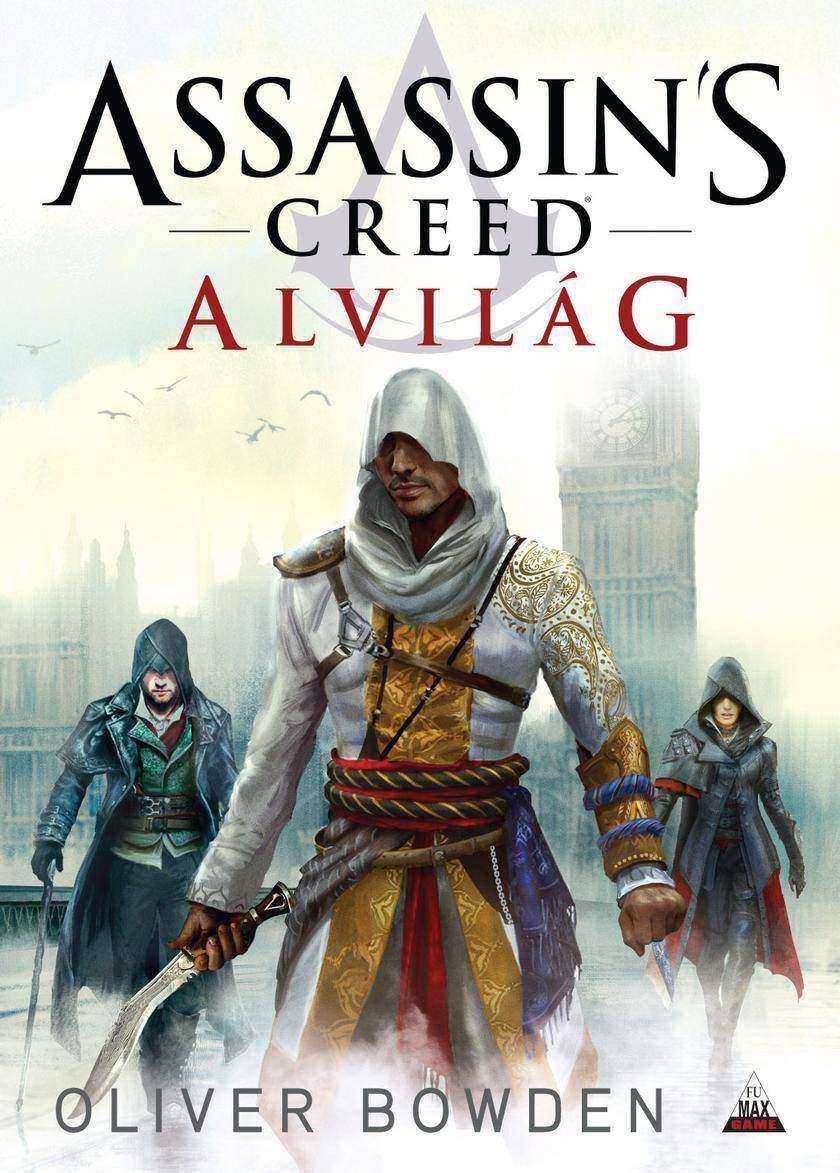
Assassin's Creed: Alvilág
¥71.69
To the irreverent—and which of us will claim entire exemption from that comfortable classification—there is something very amusing in the attitude of the orthodox criticism toward Bernard Shaw. He so obviously disregards all the canons and unities and other things which every well-bred dramatist is bound to respect that his work is really unworthy of serious criticism (orthodox). Indeed he knows no more about the dramatic art than, according to his own story in "The Man of Destiny," Napoleon at Tavazzano knew of the Art of War. But both men were successes each in his way—the latter won victories and the former gained audiences, in the very teeth of the accepted theories of war and the theatre. Shaw does not know that it is unpardonable sin to have his characters make long speeches at one another, apparently thinking that this embargo applies only to long speeches which consist mainly of bombast and rhetoric. There never was an author who showed less predilection for a specific medium by which to accomplish his results. He recognized, early in his days, many things awry in the world and he assumed the task of mundane reformation with a confident spirit. It seems such a small job at twenty to set the times aright. He began as an Essayist, but who reads essays now-a-days—he then turned novelist with no better success, for no one would read such preposterous stuff as he chose to emit. He only succeeded in proving that absolutely rational men and women—although he has created few of the latter—can be most extremely disagreeable to our conventional way of thinking. As a last resort, he turned to the stage, not that he cared for the dramatic art, for no man seems to care less about "Art for Art's sake," being in this a perfect foil to his brilliant compatriot and contemporary, Wilde. He cast his theories in dramatic forms merely because no other course except silence or physical revolt was open to him. For a long time it seemed as if this resource too was doomed to fail him. But finally he has attained a hearing and now attempts at suppression merely serve to advertise their victim. It will repay those who seek analogies in literature to compare Shaw with Cervantes. After a life of heroic endeavor, disappointment, slavery, and poverty, the author of "Don Quixote" gave the world a serious work which caused to be laughed off the world's stage forever the final vestiges of decadent chivalry. The institution had long been outgrown, but its vernacular continued to be the speech and to express the thought "of the world and among the vulgar," as the quaint, old novelist puts it, just as to-day the novel intended for the consumption of the unenlightened must deal with peers and millionaires and be dressed in stilted language. Marvellously he succeeded, but in a way he least intended. We have not yet, after so many years, determined whether it is a work to laugh or cry over. "It is our joyfullest modern book," says Carlyle, while Landor thinks that "readers who see nothing more than a burlesque in 'Don Quixote' have but shallow appreciation of the work." Shaw in like manner comes upon the scene when many of our social usages are outworn. He sees the fact, announces it, and we burst into guffaws. The continuous laughter which greets Shaw's plays arises from a real contrast in the point of view of the dramatist and his audiences. When Pinero or Jones describes a whimsical situation we never doubt for a moment that the author's point of view is our own and that the abnormal predicament of his characters appeals to him in the same light as to his audience. With Shaw this sense of community of feeling is wholly lacking. He describes things as he sees them, and the house is in a roar. Who is right If we were really using our own senses and not gazing through the glasses of convention and romance and make-believe, should we see things as Shaw does Must it not cause Shaw to doubt his own or the public's sanity to hear audiences laughing boisterously over tragic situations And yet, if they did not come to laugh, they would not come at all. Mockery is the price he must pay for a hearing. Or has he calculated to a nicety the power of reaction Does he seek to drive us to aspiration by the portrayal of sordidness, to disinterestedness by the picture of selfishness, to illusion by disillusionment It is impossible to believe that he is unconscious of the humor of his dramatic situations, yet he stoically gives no sign. He even dares the charge, terrible in proportion to its truth, which the most serious of us shrinks from—the lack of a sense of humor. Men would rather have their integrity impugned. In "Arms and the Man" the subject which occupies the dramatist's attention is that survival of barbarity—militarism—which raises its horrid head from time to time to cast a doubt on the reality of our civilization. No more hoary superstition survives than that the donning of a uniform changes the nature of the wearer. This
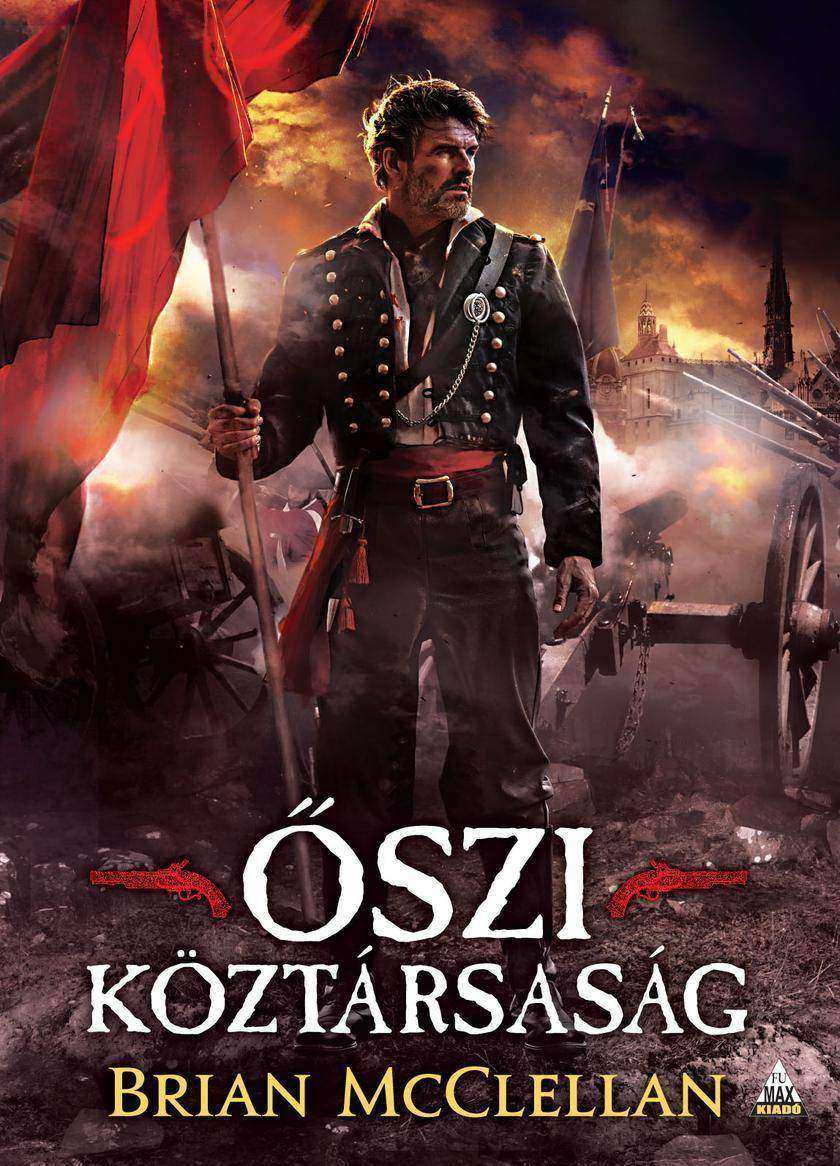
?szi k?ztársaság
¥80.52
Anna Karenina is a novel by the Russian writer Leon Tolstoy, published in serial installments from 1873 to 1877 in the periodical The Russian Messenger. Tolstoy clashed with editor Mikhail Katkov over political issues that arose in the final installment (Tolstoy's unpopular views of volunteers going to Serbia); therefore, the novel's first complete appearance was in book form. Widely regarded as a pinnacle in realist fiction, Tolstoy considered Anna Karenina his first true novel, when he came to consider War and Peace to be more than a novel. Fyodor Dostoevsky declared it to be "flawless as a work of art". His opinion was shared by Vladimir Nabokov, who especially admired "the flawless magic of Tolstoy's style", and by William Faulkner, who described the novel as "the best ever written". The novel is currently enjoying popularity, as demonstrated by a recent poll of 125 contemporary authors by J. Peder Zane, published in 2007 in "The Top Ten" in Time, which declared that Anna Karenina is the "greatest novel ever written" "..The novel opens with a scene introducing Prince Stepan Arkadyevich Oblonsky ("Stiva"), a Moscow aristocrat and civil servant who has been unfaithful to his wife Darya Alexandrovna ("Dolly"). Dolly has discovered his affair with the family's governess, and the household and family are in turmoil. Stiva's affair and his reaction to his wife's distress show an amorous personality that he cannot seem to suppress. In the midst of the turmoil, Stiva informs the household that his married sister, Anna Arkadyevna Karenina, is coming to visit from Saint Petersburg. Meanwhile, Stiva's childhood friend, Konstantin Dmitrievich Levin ("Kostya"), arrives in Moscow with the aim of proposing to Dolly's youngest sister, Princess Katerina Alexandrovna Shcherbatskaya ("Kitty"). Levin is a passionate, restless, but shy aristocratic landowner who, unlike his Moscow friends, chooses to live in the country on his large estate. He discovers that Kitty is also being pursued by Count Alexei Kirillovich Vronsky, an army officer. Whilst at the railway station to meet Anna, Stiva bumps into Vronsky who is there to meet his mother, the Countess Vronskaya. Anna and Vronskaya have traveled and talked together in the same carriage. As the family members are reunited, and Vronsky sees Anna for the first time, a railway worker accidentally falls in front of a train and is killed. Anna interprets this as an "evil omen." Vronsky, however, is infatuated with her. Anna is uneasy about leaving her young son, Sergei ("Seryozha"), alone for the first time.At the Oblonsky home, Anna talks openly and emotionally to Dolly about Stiva's affair and convinces her that Stiva still loves her despite the infidelity. Dolly is moved by Anna's speeches and decides to forgive Stiva. Kitty, who comes to visit Dolly and Anna, is just eighteen. In her first season as a debutante, she is expected to make an excellent match with a man of her social standing. Vronsky has been paying her considerable attention, and she expects to dance with him at a ball that evening. Kitty is very struck by Anna's beauty and personality and becomes infatuated with her just as Vronsky is. When Levin proposes to Kitty at her home, she clumsily turns him down, believing she is in love with Vronsky and that he will propose to her, and encouraged to do so by her mother who believes Vronsky would be a better match.At the big ball Kitty expects to hear something definitive from Vronsky, but he dances with Anna, choosing her as a partner over a shocked and heartbroken Kitty. Levin, crushed by Kitty's refusal, returns to his estate, abandoning any hope of marriage. Anna returns to her husband Alexei Alexandrovich Karenin, a senior government official, and her son Seryozha in Saint Petersburg. On seeing her husband for the first time since her encounter with Vronsky, Anna realises that she finds him unattractive, though she tells herself he is a good man.." ? ABOUT AUTHOR: Tolstoy was born in Yasnaya Polyana, the family estate in the Tula region of Russia. The Tolstoys were a well-known family of old Russian nobility. He was the fourth of five children of Count Nikolai Ilyich Tolstoy, a veteran of the Patriotic War of 1812, and Countess Mariya Tolstaya (Volkonskaya).
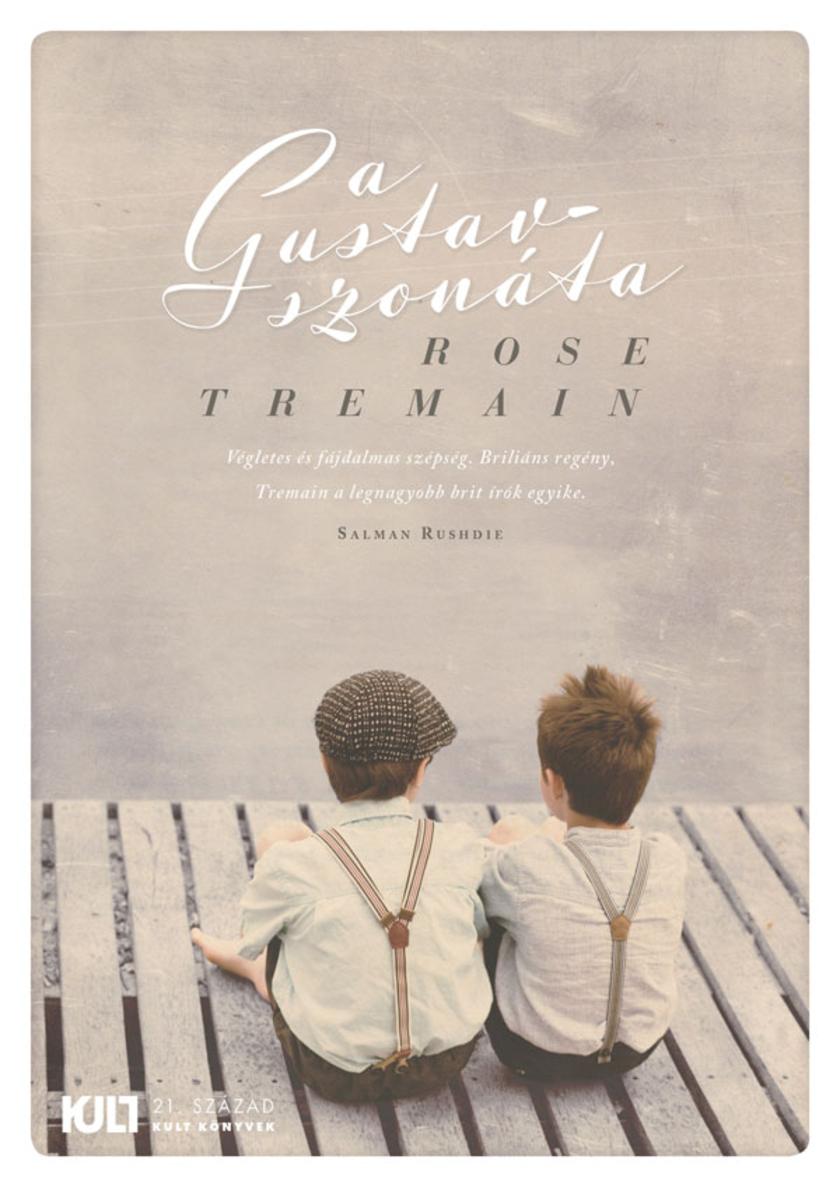
A Gustav-szonáta
¥70.80
One day – actor-turned-detective – Anthony Noir receives a letter from California, in which an old lady asks his help in the investigation of a long-ago case. On New Year’s Eve 1929 a famous Hollywood actress died in a car accident. The mysterious client implies it was – in fact – a deliberate murder. Anthony discovers all the possible details of the extraordinary assignment, even so he has to embark on an extensive journey to the past before he can unveil the secret of the movie star…

A Daughter of the Snow: (Illustrated)
¥8.09
Az emberek, törpök, manók és tündék több mint száz esztend?n keresztül éltek békében egymás mellett. De ennek a békének vége, és a fajok ismét egymás ellen – és maguk ellen – harcolnak. Ebben a viharos id?ben születik egy gyermek, akire a világ összes vajákja várt. Ciri a Cintrai N?stényoroszlán, Calanthe királyné unokája. Különös hatalmakkal és még különösebb sorssal van megáldva, mert egy jövendölés Lángnak hívja ?t: lángnak, amely örökre megváltoztatja a világot – jó vagy rossz irányba… Ríviai Geralt, a vaják magával viszi Cirit a vajákok központjába, de Ciri egyáltalán nem hasonlít a többi tanítványhoz. Nem kell keresztülmenjen az átlagos vajákok számára a természetfeletti képességek eléréséhez szükséges mutációkon, amelyek gyakran kiirtják az érzelmeket és az emberi érzékenységet. Ciri valami egészen egyedülálló.

Vallomás a csodáról: Csinszka naplója
¥68.83
Ki ne várná repesve, hogy beteljesíthesse gyermekkori vágyát?Hogy kiszakadva a hétk?znapok egyhangúságából végre nekivághasson egy kalandos világ k?rüli útnak?Lili Green izgatottan készül a régóta szervezett utazásra. ?sszekészített csomagokkal és új élmények reményével vág bele az indulás el?tti utolsó munkanapjába. ?m egy pillanat alatt minden a feje tetejére áll, amikor Lili egy b?ncselekmény szemtanújává válik, és ezáltal egy bérgyilkos céltáblájának k?zepére kerül. A teljesen félresiklott utazás pedig immár nem a szép emlékek gy?jtésér?l, hanem az életben maradásról szól.Carrie Cooper kalanddal, érzelemmel, humorral és váratlan fordulatokkal teli t?rténete során végigizgulhatjuk, hogy egy teljesen hétk?znapi lány mit tesz olyan cseppet sem mindennapi helyzetek sodrásában, amelyek végérvényesen megváltoztatják az életét.
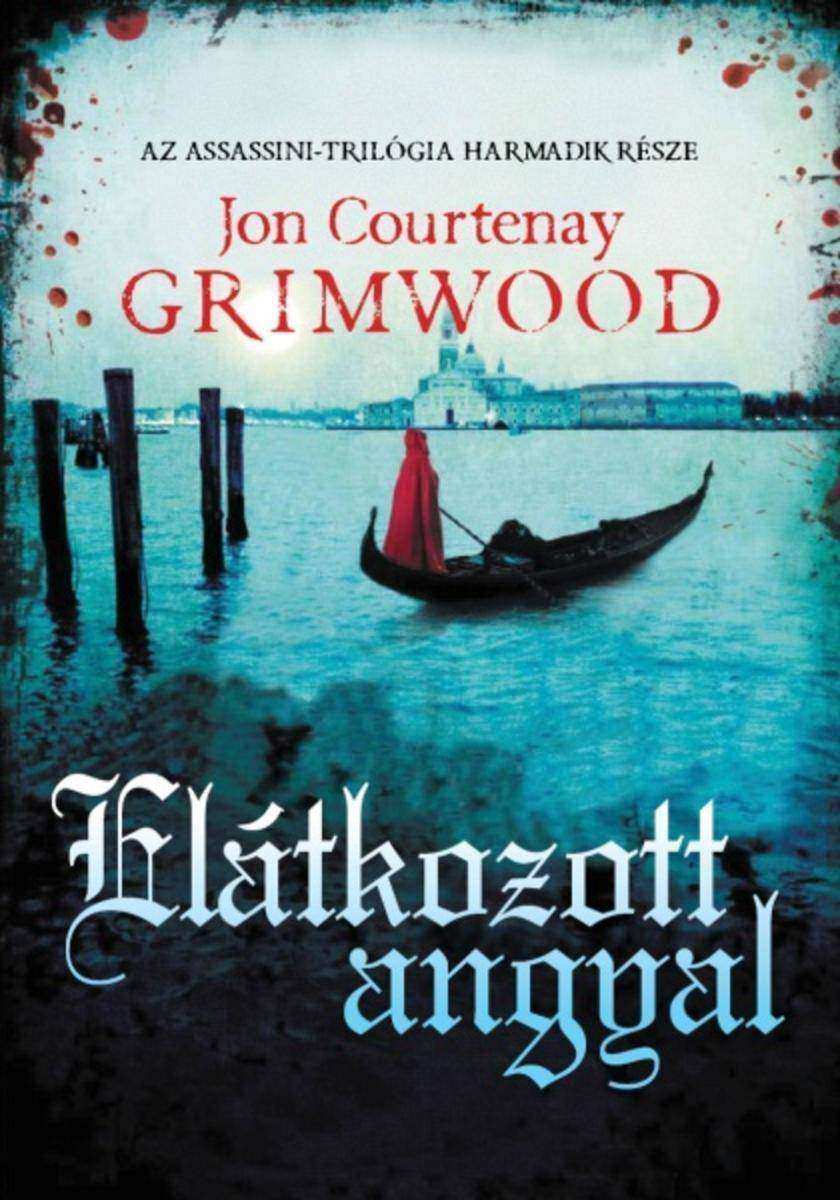
Elátkozott angyal
¥57.31
L?NGRA LOBBAN A VIL?G ? Miután ezernyi lakható új világ felé nyílt meg az út, megkezd?dik a naprendszer hatalmi struktúráinak átrendez?dése. A Mars lassan elnéptelenedik, míg a küls? bolygók nagyobb befolyást próbálnak szerezni maguknak, és hajók t?nnek el sorra, megmagyarázhatatlan módon. ? Mindek?zben a Rocinante hosszabb id?re szárazdokkba kényszerül a lassú zónában és az Iloszon zajlott események miatt, ezért James Holden legénysége a javítások idejére “szabadságolja magát”, ki-ki visszatér a saját világába, hogy lezárja a múltja néhány elvarratlan szálát, és ez mindnyájuk számára a túlélésért folytatott keserves küzdelembe torkollik. De nem csak számukra: az emberiség saját végzete felé rohan, mert a múlt b?nei megk?vetelik az árukat. ? A New York Times bestseller és t?bbsz?r?sen díjnyertes regényciklusból a SyFy csatornán fut a nagy kritikai sikert aratott tévésorozat, a The Expanse.

Большой лечебник древних знахарей
¥18.07
Чи уявляли ви колись ?себе ?деального?? А що зробили для того, щоб таким стати? Можливо, ви хот?ли присвятити час р?дним або прочитати фахову книжку, але вже п?втори години гра?те в ?гри на смартфон?. Давно мр?яли схуднути, але не можете встояти перед запахом т?стечок. Середовище пост?йно в?двол?ка? нас в?д мети так званими тригерами — ароматами, ?аджетами та ?ншими др?бницями. Як ?перемкнутися? з? спокуси на бажану д?ю, а пот?м перетворити це в звичку, розпов?сть автор книжки Маршалл ?олдсм?т.
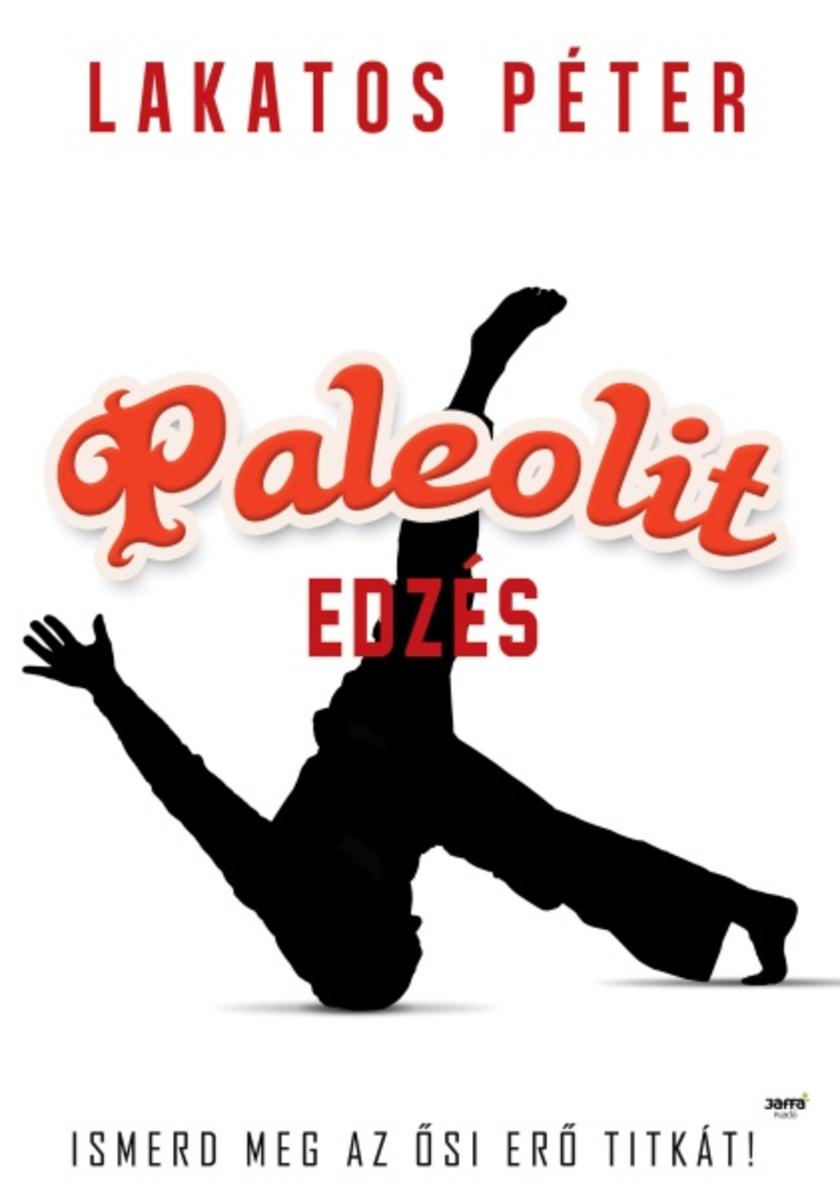
Paleolit edzés
¥80.36
Egyszer éjjel z?rgést hallottam. Befutottam. Láttam, hogy az ágya üres. Aztán gyakrabban megnéztem. Sohse hallottam mikor elment, se mikor megj?tt. De mikor üres volt az ágya, felk?lt?ttem Apolló nénit és itt reszkettünk, itt imádkoztunk együtt a Mária képe el?tt, hogy az én jó bátyámat oltalmozza.
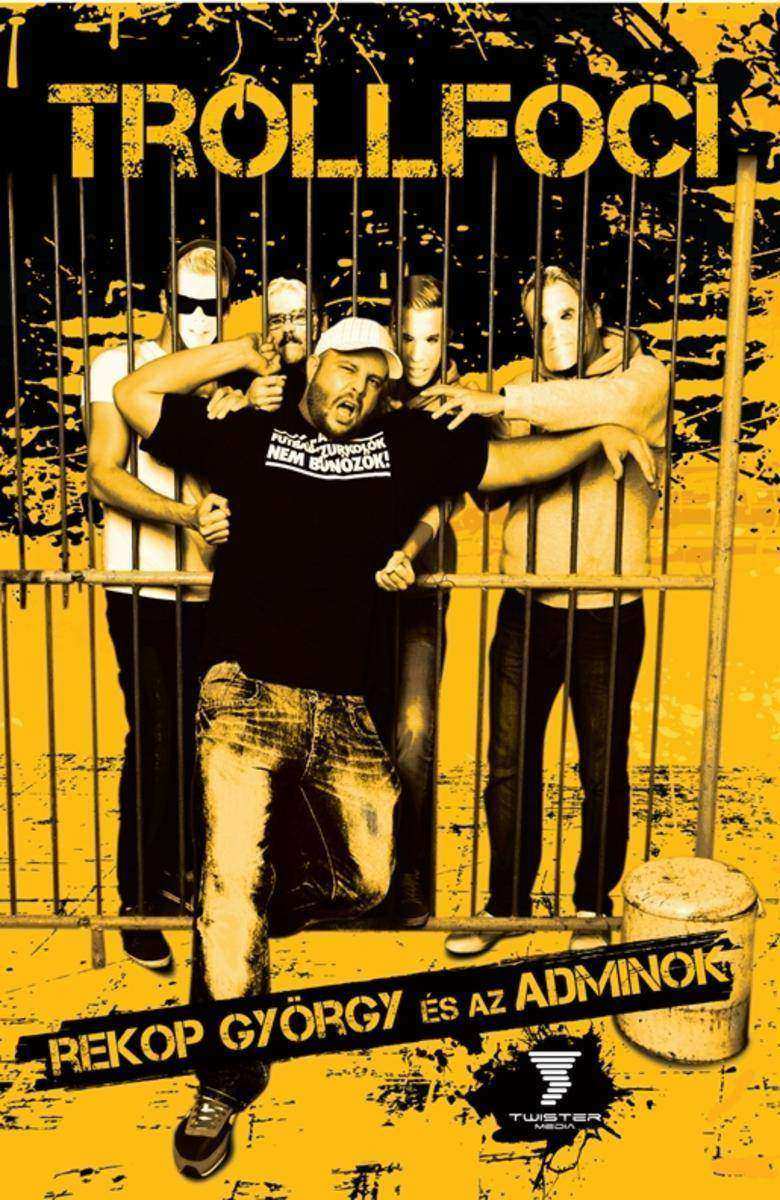
TrollFoci
¥69.41
Выращивание однолетних и многолетних трав Сбор, хранение, переработка лекарственных и пряных растений Вырастить мяту, базилик, рукколу, укроп, шалфей, лаванду, эхинацею можно на участке, подоконнике, балконе, в палисаднике! Книга рассказывает о свойствах трав, дает рекомендации по посадке и уходу за ними в домашних условиях или на даче, объясняет, когда и как правильно собирать урожай. Практичное дополнение! Рекомендации по составлению пряных кулинарных смесей и лекарственных сборов! Vyrashhivanie odnoletnih i mnogoletnih trav Sbor, hranenie, pererabotka lekarstvennyh i prjanyh rastenij Vyrastit' mjatu, bazilik, rukkolu, ukrop, shalfej, lavandu, jehinaceju mozhno na uchastke, podokonnike, balkone, v palisadnike! Kniga rasskazyvaet o svojstvah trav, daet rekomendacii po posadke i uhodu za nimi v domashnih uslovijah ili na dache, ob#jasnjaet, kogda i kak pravil'no sobirat' urozhaj. Praktichnoe dopolnenie! Rekomendacii po sostavleniju prjanyh kulinarnyh smesej i lekarstvennyh sborov!
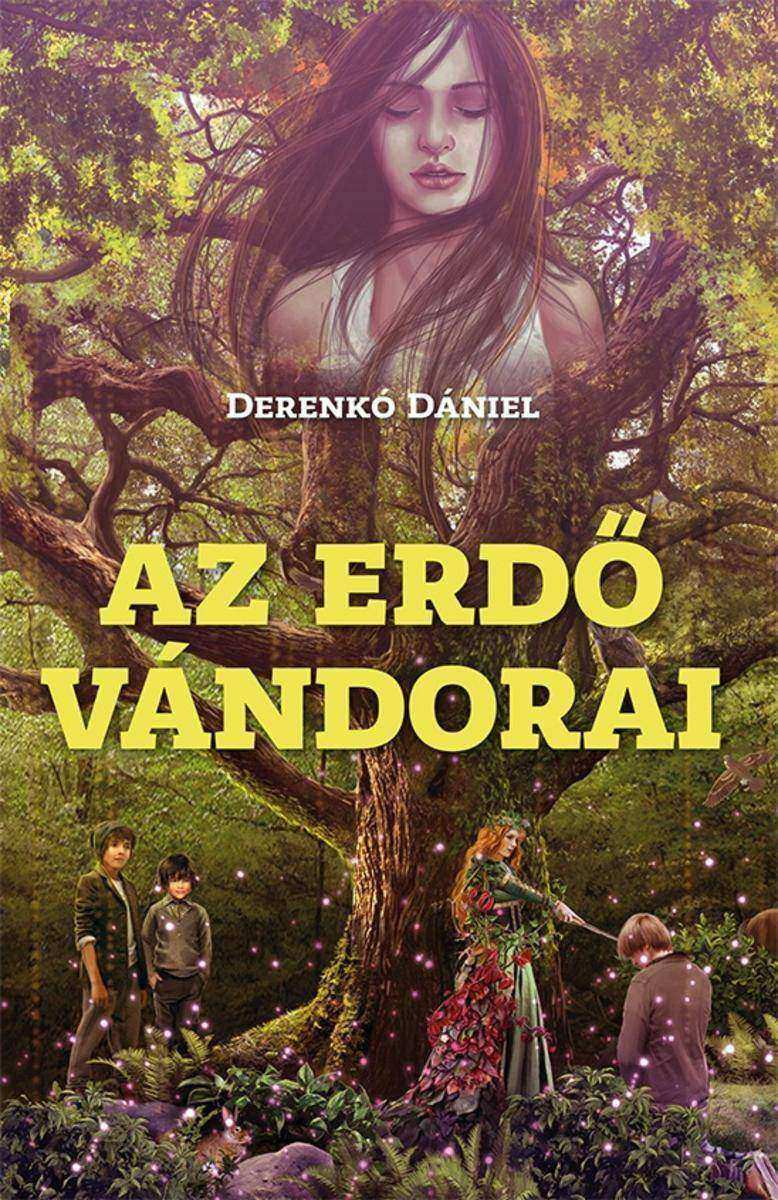
Az erd? vándorai
¥72.59
Шанувальниця врятувала письменника в?д смерт?. Але ?? захоплення перетворю?ться на?одержим?сть... Shanuval'nicja vrjatuvala pis'mennika v?d smert?. Ale ?? zahoplennja peretvorju?t'sja na?oderzhim?st'...
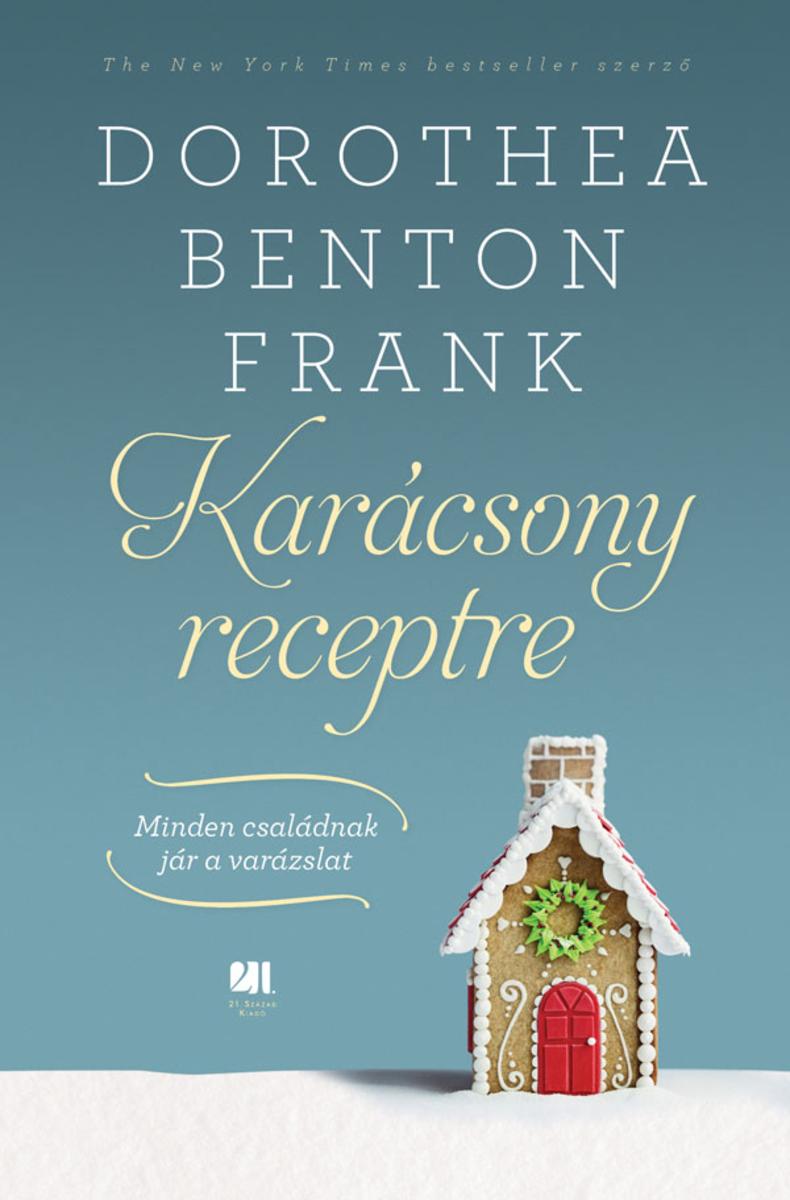
Karácsony receptre: Minden családnak jár a boldogság
¥56.57
Meddig mennél el a szeretteidért? Amikor Olivia Brookes felhívja a rend?rséget, hogy bejelentse férje és gyermekei elt?nését, azt hiszi, soha t?bbé nem látja viszont ?ket. Okkal fél a legrosszabbtól, hiszen nem ez az els? tragédia, amit átél. Most, két esztend?vel kés?bb, Tom Douglas f?felügyel?t ismét ehhez a családhoz küldik nyomozni, ám ezúttal Oliiva t?nt el. Minden bizonyíték arra utal, hogy reggel még az otthonában tartózkodott – kocsija a garázsban áll, pénztárcája a konyhaasztalon hever? táskájában van. A rend?rség el akarja rendelni Olivia keresését, de a családtagok ?sszes fényképét eltávolították a fotóalbumokból, számítógépekb?l, telefonokból. Aztán meglátják a vért… Vajon a múlt utolérte Oliviát? Aludj jól – ha tudsz. Sosem tudhatod, ki figyel.
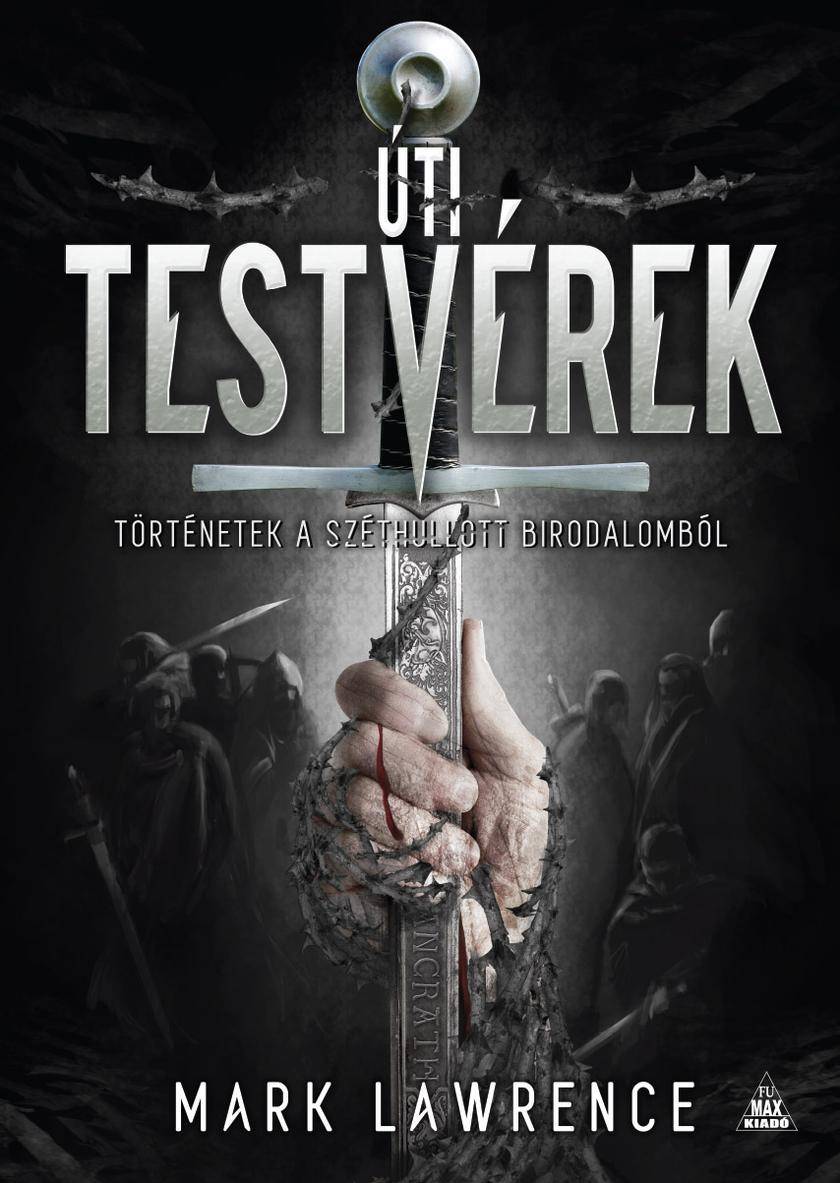
?ti testvérek
¥43.16
Alessandro di Mariano di Vanni Filipepi, better known as Sandro Botticelli ( 1445 – 1510), was an Italian painter of the Early Renaissance. He belonged to the Florentine school under the patronage of Lorenzo de' Medici, a movement that Giorgio Vasari would characterize less than a hundred years later as a "golden age", a thought, suitably enough, he expressed at the head of his Vita of Botticelli. Botticelli's posthumous reputation suffered until the late 19th century; since then his work has been seen to represent the linear grace of Early Renaissance painting. Among his best known works are The Birth of Venus and Primavera. In 1481, Pope Sixtus IV summoned Botticelli and other prominent Florentine and Umbrian artists to fresco the walls of the Sistine Chapel. The iconological program was the supremacy of the Papacy. Sandro's contribution included the Temptations of Christ, the Punishment of the Rebels and Trial of Moses. He returned to Florence, and "being of a sophistical turn of mind, he there wrote a commentary on a portion of Dante and illustrated the Inferno which he printed, spending much time over it, and this abstention from work led to serious disorders in his living." Thus Vasari characterized the first printed Dante (1481) with Botticelli's decorations; he could not imagine that the new art of printing might occupy an artist. The masterpieces Primavera (c. 1482) and The Birth of Venus (c. 1485) were both seen by Vasari at the villa of Lorenzo di Pierfrancesco de' Medici at Castello in the mid-16th century, and until recently, it was assumed that both works were painted specifically for the villa. Recent scholarship suggests otherwise: the Primavera was painted for Lorenzo's townhouse in Florence, and The Birth of Venus was commissioned by someone else for a different site. By 1499, both had been installed at Castello. In these works, the influence of Gothic realism is tempered by Botticelli's study of the antique. But if the painterly means may be understood, the subjects themselves remain fascinating for their ambiguity. The complex meanings of these paintings continue to receive widespread scholarly attention, mainly focusing on the poetry and philosophy of humanists who were the artist's contemporaries. The works do not illustrate particular texts; rather, each relies upon several texts for its significance. Of their beauty, characterized by Vasari as exemplifying "grace" and by John Ruskin as possessing linear rhythm, there can be no doubt. In the mid-1480s, Botticelli worked on a major fresco cycle with Perugino, Domenico Ghirlandaio and Filippino Lippi, for Lorenzo the Magnificent's villa near Volterra; in addition he painted many frescoes in Florentine churches. In 1491 he served on a committee to decide upon a fa?ade for the Cathedral of Florence.
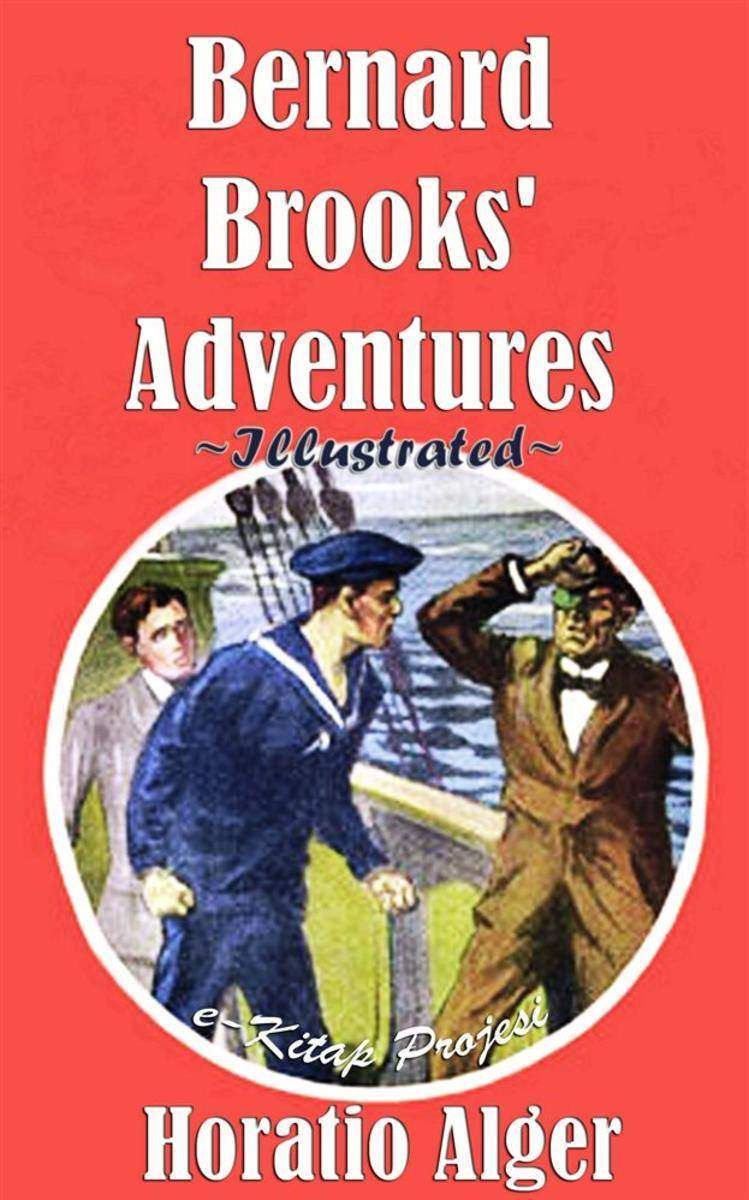
Bernard Brooks' Adventures: Illustrated
¥4.58
The dominant motives in Calderon's dramas are characteristically national: fervid loyalty to Church and King, and a sense of honor heightened almost to the point of the fantastic. Though his plays are laid in a great variety of scenes and ages, the sentiment and the characters remain essentially Spanish; and this intensely local quality has probably lessened the vogue of Calderon in other countries. In the construction and conduct of his plots he showed great skill, yet the ingenuity expended in the management of the story did not restrain the fiery emotion and opulent imagination which mark his finest speeches and give them a lyric quality which some critics regard as his greatest distinction. Of all Calderon's works, "Life is a Dream" may be regarded as the most universal in its theme. It seeks to teach a lesson that may be learned from the philosophers and religious thinkers of many ages—that the world of our senses is a mere shadow, and that the only reality is to be found in the invisible and eternal. The story which forms its basis is Oriental in origin, and in the form of the legend of "Barlaam and Josaphat" was familiar in all the literatures of the Middle Ages. Combined with this in the plot is the tale of Abou Hassan from the "Arabian Nights," the main situations in which are turned to farcical purposes in the Induction to the Shakespearean "Taming of the Shrew." But with Calderon the theme is lifted altogether out of the atmosphere of comedy, and is worked up with poetic sentiment and a touch of mysticism into a symbolic drama of profound and universal philosophical significance. LIFE IS A DREAM DRAMATIS PERSONAE Basilio King of Poland.Segismund his Son.Astolfo his Nephew.Estrella his Niece.Clotaldo a General in Basilio's Service.Rosaura a Muscovite Lady.Fife her Attendant. Chamberlain, Lords in Waiting, Officers,Soldiers, etc., in Basilio's Service. The Scene of the first and third Acts lies on the Polish frontier: of the second Act, in Warsaw. As this version of Calderon's drama is not for acting, a higher and wider mountain-scene than practicable may be imagined for Rosaura's descent in the first Act and the soldiers' ascent in the last. The bad watch kept by the sentinels who guarded their state-prisoner, together with much else (not all!) that defies sober sense in this wild drama, I must leave Calderon to answer for; whose audience were not critical of detail and probability, so long as a good story, with strong, rapid, and picturesque action and situation, was set before them. about author: Pedro Calderon de la Barca was born in Madrid, January 17, 1600, of good family. He was educated at the Jesuit College in Madrid and at the University of Salamanca; and a doubtful tradition says that he began to write plays at the age of thirteen. His literary activity was interrupted for ten years, 1625-1635, by military service in Italy and the Low Countries, and again for a year or more in Catalonia. In 1637 he became a Knight of the Order of Santiago, and in 1651 he entered the priesthood, rising to the dignity of Superior of the Brotherhood of San Pedro in Madrid. He held various offices in the court of Philip IV, who rewarded his services with pensions, and had his plays produced with great splendor. He died May 5, 1681. At the time when Calderon began to compose for the stage, the Spanish drama was at its height. Lope de Vega, the most prolific and, with Calderon, the greatest, of Spanish dramatists, was still alive; and by his applause gave encouragement to the beginner whose fame was to rival his own. The national type of drama which Lope had established was maintained in its essential characteristics by Calderon, and he produced abundant specimens of all its varieties. Of regular plays he has left a hundred and twenty; of "Autos Sacramentales," the peculiar Spanish allegorical development of the medieval mystery, we have seventy-three; besides a considerable number of farces.
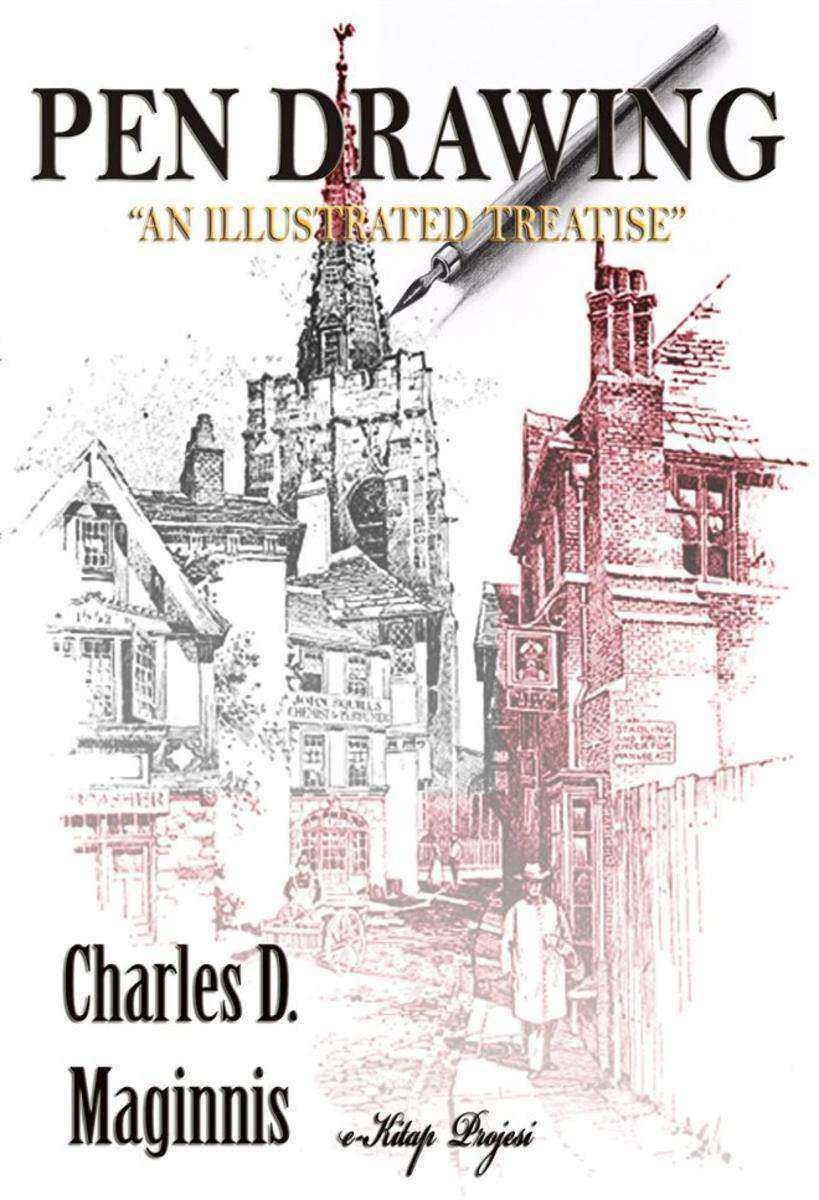
Pen Drawing: "An Illustrated Treatise"
¥18.74
The book's protagonist is an English scientist and gentleman inventor living in Richmond, Surrey in Victorian England, and identified by a narrator simply as the Time Traveller. The narrator recounts the Traveller's lecture to his weekly dinner guests that time is simply a fourth dimension, and his demonstration of a tabletop model machine for travelling through it. He reveals that he has built a machine capable of carrying a person, and returns at dinner the following week to recount a remarkable tale, becoming the new narrator.In the new narrative, the Time Traveller tests his device with a journey that takes him to A.D. 802,701, where he meets the Eloi, a society of small, elegant, childlike adults. They live in small communities within large and futuristic yet slowly deteriorating buildings, doing no work and having a frugivorous diet. His efforts to communicate with them are hampered by their lack of curiosity or discipline, and he speculates that they are a peaceful communist society, the result of humanity conquering nature with technology, and subsequently evolving to adapt to an environment in which strength and intellect are no longer advantageous to survival. Returning to the site where he arrived, the Time Traveller is shocked to find his time machine missing, and eventually works out that it has been dragged by some unknown party into a nearby structure with heavy doors, locked from the inside, which resembles a Sphinx. Later in the dark, he is approached menacingly by the Morlocks, ape-like troglodytes who live in darkness underground and surface only at night. Within their dwellings he discovers the machinery and industry that makes the above-ground paradise possible. He alters his theory, speculating that the human race has evolved into two species: the leisured classes have become the ineffectual Eloi, and the downtrodden working classes have become the brutish light-fearing Morlocks. Deducing that the Morlocks have taken his time machine, he explores the Morlock tunnels, learning that they feed on the Eloi. His revised analysis is that their relationship is not one of lords and servants but of livestock and ranchers. The Time Traveller theorizes that intelligence is the result of and response to danger; with no real challenges facing the Eloi, they have lost the spirit, intelligence, and physical fitness of humanity at its peak. Meanwhile, he saves an Eloi named Weena from drowning as none of the other Eloi take any notice of her plight, and they develop an innocently affectionate relationship over the course of several days. He takes Weena with him on an expedition to a distant structure that turns out to be the remains of a museum, where he finds a fresh supply of matches and fashions a crude weapon against Morlocks, whom he fears he must fight to get back his machine. He plans to take Weena back to his own time. Because the long and tiring journey back to Weena's home is too much for them, they stop in the forest, and they are then overcome by Morlocks in the night, and Weena faints. The Traveller escapes only when a small fire he had left behind them to distract the Morlocks catches up to them as a forest fire; Weena is presumably lost in the fire, as are the Morlocks. The Morlocks use the time machine as bait to ensnare the Traveller, not understanding that he will use it to escape. He travels further ahead to roughly 30 million years from his own time. There he sees some of the last living things on a dying Earth, menacing reddish crab-like creatures slowly wandering the blood-red beaches chasing butterflies in a world covered in simple lichenous vegetation. He continues to make short jumps through time, seeing Earth's rotation gradually cease and the sun grow larger, redder, and dimmer, and the world falling silent and freezing as the last degenerate living things die out.
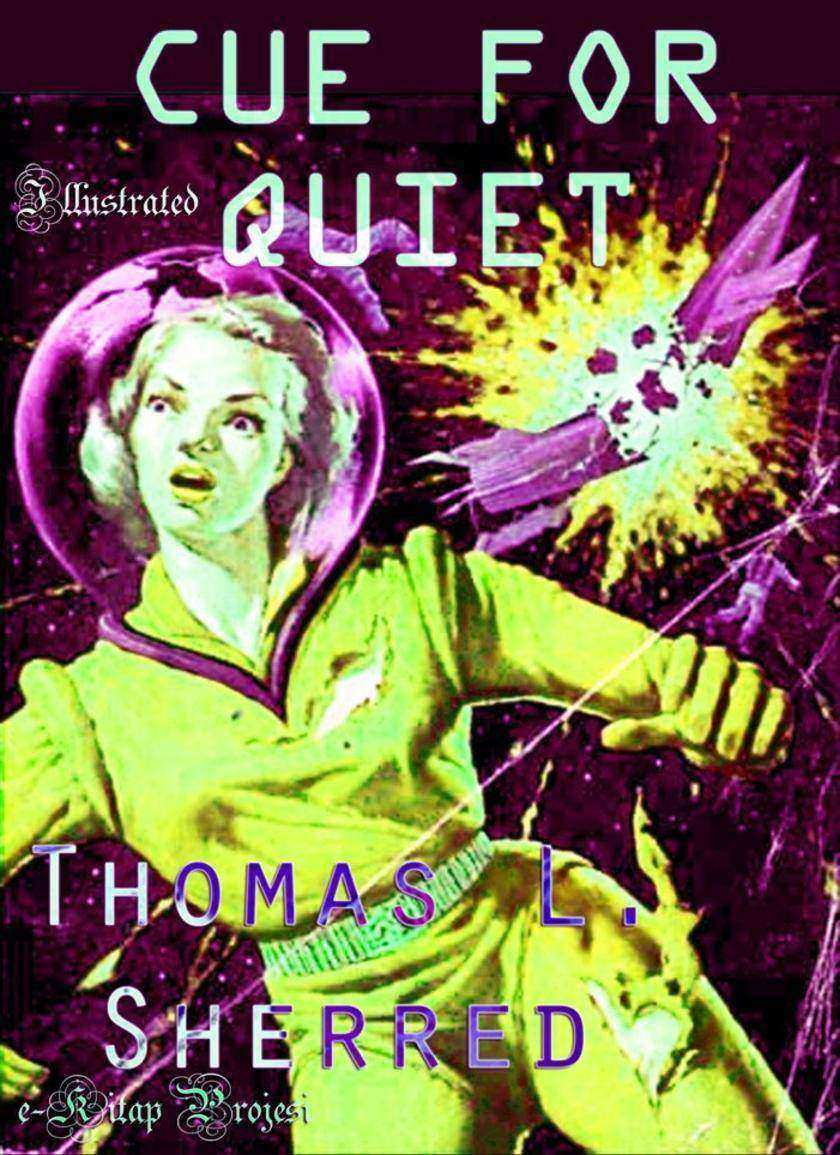
Cue for Quiet
¥9.24
Madame Bovary takes place in provincial northern France, near the town of Rouen in Normandy. The story begins and ends with Charles Bovary, a stolid, kindhearted man without much ability or ambition. As the novel opens, Charles is a shy, oddly dressed teenager arriving at a new school amidst the ridicule of his new classmates. Later, Charles struggles his way to a second-rate medical degree and becomes an officier de santé in the Public Health Service. His mother chooses a wife for him, an unpleasant but supposedly rich widow named Heloise Dubuc, and Charles sets out to build a practice in the village of Tostes (now T?tes). One day, Charles visits a local farm to set the owner's broken leg, and meets his client's daughter, Emma Rouault. Emma is a beautiful, daintily dressed young woman who has received a "good education" in a convent and who has a latent but powerful yearning for luxury and romance imbibed from the popular novels she has read. Charles is immediately attracted to her, and begins checking on his patient far more often than necessary until Heloise's jealousy puts a stop to the visits. When Heloise dies, Charles waits a decent interval, then begins courting Emma in earnest. Her father gives his consent, and Emma and Charles are married. ABOUT AUTHOR: Gustave Flaubert (French: December 12, 1821 – May 8, 1880) was an influential French writer widely considered one of the greatest novelists in Western literature. He is known especially for his first published novel, Madame Bovary (1857), for his Correspondence, and for his scrupulous devotion to his style and aesthetics. The celebrated short story writer Maupassant was a protégé of Flaubert. Early life and education:Flaubert was born on December 12, 1821, in Rouen, in the Seine-Maritime department of Upper Normandy, in northern France. He was the second son of Anne Justine Caroline (née Fleuriot; 1793–1872) and Achille-Cléophas Flaubert (1784–1846), a surgeon. He began writing at an early age, as early as eight according to some sources.He was educated at the Lycée Pierre Corneille in Rouen, and did not leave until 1840, when he went to Paris to study law. In Paris, he was an indifferent student and found the city distasteful. He made a few acquaintances, including Victor Hugo. Toward the end of 1840, he traveled in the Pyrenees and Corsica. In 1846, after an attack of epilepsy, he left Paris and abandoned the study of law. Writing career:His first finished work was November, a novella, which was completed in 1842.In September 1849, Flaubert completed the first version of a novel, The Temptation of Saint Anthony. He read the novel aloud to Louis Bouilhet and Maxime Du Camp over the course of four days, not allowing them to interrupt or give any opinions. At the end of the reading, his friends told him to throw the manuscript in the fire, suggesting instead that he focus on day-to-day life rather than fantastic subjects.In 1850, after returning from Egypt, Flaubert began work on Madame Bovary. The novel, which took five years to write, was serialized in the Revue de Paris in 1856. The government brought an action against the publisher and author on the charge of immorality, which was heard during the following year, but both were acquitted. When Madame Bovary appeared in book form, it met with a warm reception.In 1858, Flaubert traveled to Carthage to gather material for his next novel, Salammb?. The novel was completed in 1862 after four years of work.Drawing on his youth, Flaubert next wrote L'?ducation sentimentale (Sentimental Education), an effort that took seven years. This was his last complete novel, published in the year 1869.He wrote an unsuccessful drama, Le Candidat, and published a reworked version of Temptation of Saint Anthony.
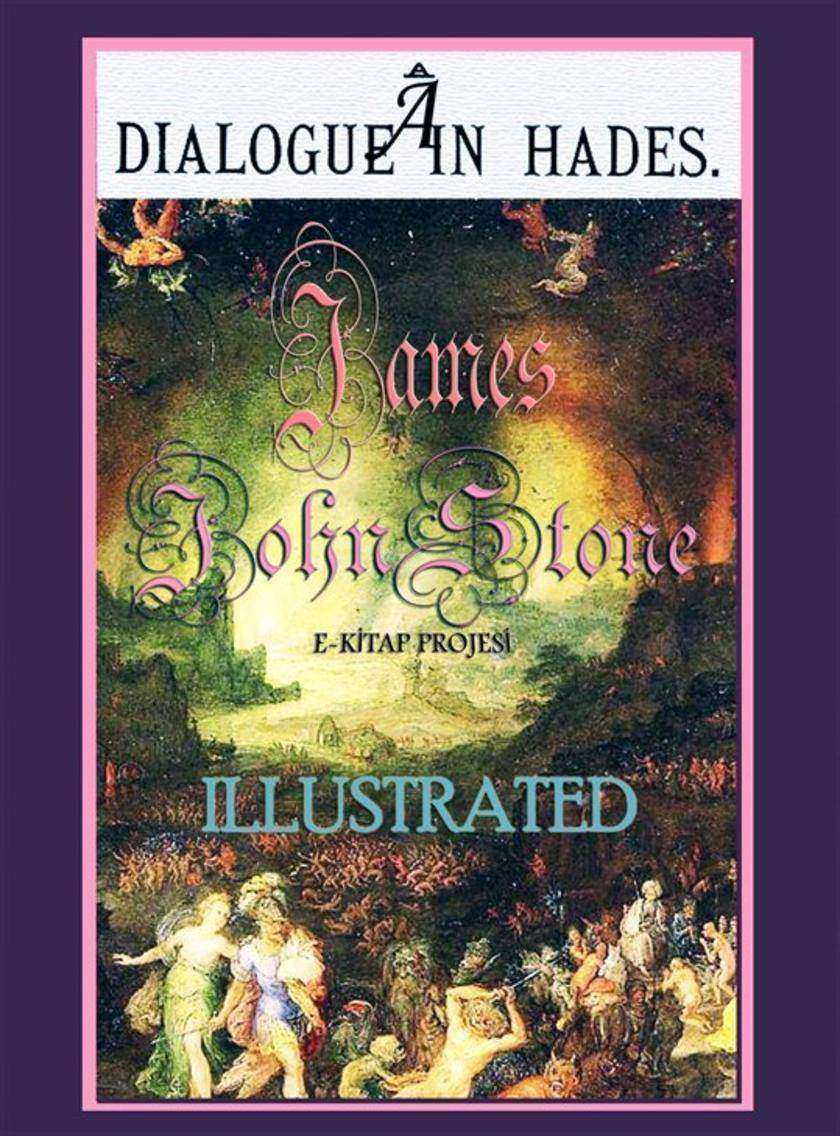
A Dialogue in Hades: "Illustrated"
¥8.09
t lány, t nézpont, t knyv. Cherry trténete, a Cseresznyés ábránd az els. Cherry Costello élete hamarosan rkre megváltozik. Somersetbe kltzik az apukájával, ahol egy új anyuka és egy csomó vadiúj testvér vár rá. Rgtn az els napon megismeri Shay Fletchert, aki annyira szívdgleszt, hogy az már kzveszélyes. Csakhogy Shay foglalt: Cherry új mostohatestvérével, Honey-val jár. Cherry pontosan tudja, milyen kockázatos Shayjel barátkoznia – hiszen ezzel mindent tnkretehet. Csakhogy ez még nem jelenti azt, hogy távol is tudja tartani magát tle… Csajok és csokik. Egy knyvsorozat, melyben minden testvérnek megvan a maga trténete… Neked melyik lány lesz a kedvenced Talán a Cseresznyés ábránd fhse, Cherry Az a lány, akinek tejeskávé szín a bre, stétbarna szeme pedig mandulavágású. Akinek élénk a képzelete, szórakoztató a társaságában lenni, és aki mindig kiáll magáért. Cathy Cassidy nyolc-kilencéves korában írta meg els képesknyvét kisccsének, és azóta ontja magából a trténeteket. Magyarul elsként a Csajok és csokik-sorozata (a Cseresznyés ábránd az 1. ktet) jelenik meg, melynek a vagány Tanberry-nvérek a fhsei, de mellettük feltnik néhány szupermen srác is, valamint Cathy egyik legnagyobb szerelme, a csokoládé is fontos szerepet kap. Cathy Skóciában él a családjával. Az sszes munka kzül, amivel valaha megpróbálkozott, az írást szereti a legjobban – hiszen amikor ír, mást sem kell csinálnia, mint ébren álmodozni egész álló nap.
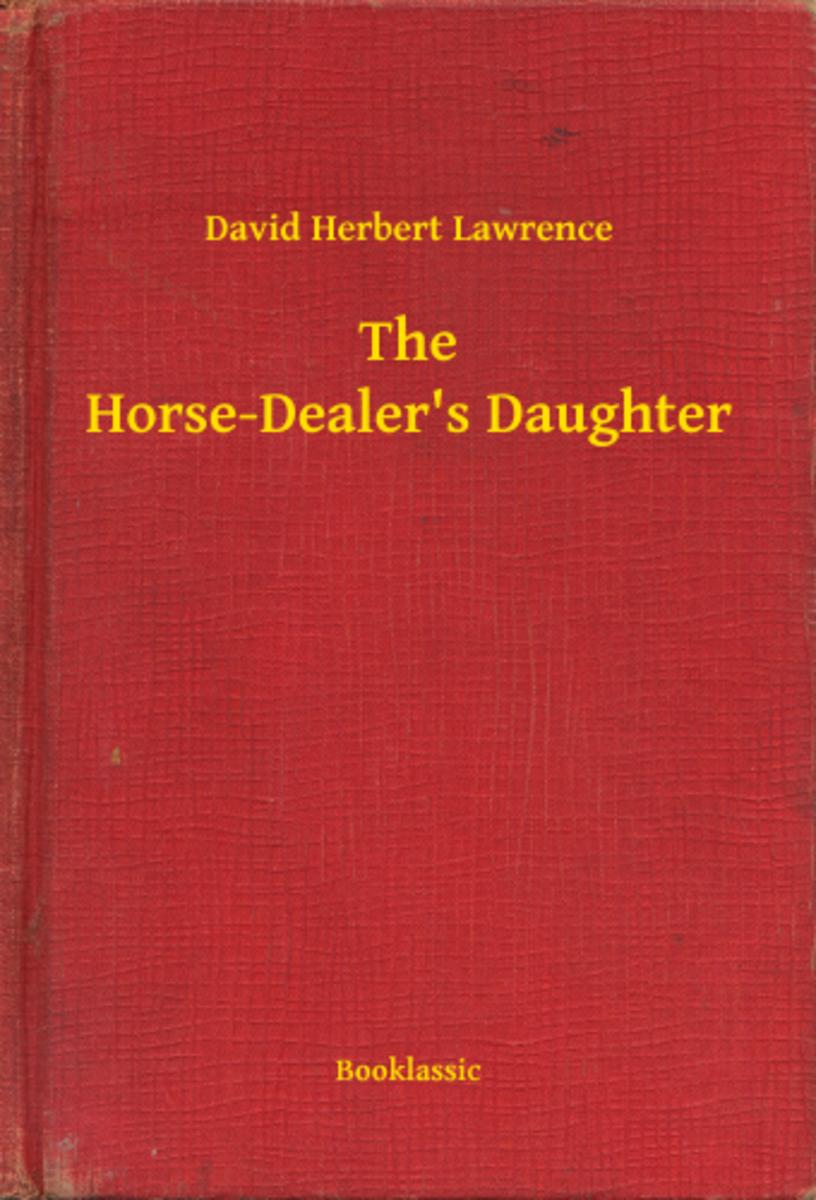
The Horse-Dealer's Daughter
¥7.93
Vajon a lélek tényleg láthatatlan?Az alapszabályok: a léleknek nincs alakja, nem tud beszélni.Akkor mégis ki az a lány, akinek a lelke minduntalan felbukkan Péter mellett és kapcsolatba lép vele?500 évvel ezel?tt a Brit Birodalom vezet?i úgy gondolták, nem elegend? a halálbüntetés a gyilkosoknak. Három, kül?nleges adottságú férfi képes volt a haláluk után is a f?ld?n tartani a b?n?s lelkeket. ?r?k magányra kárhoztatták ?ket, mivel sem egymással, sem az emberekkel nem tudtak kommunikálni.A 17 éves Peter kül?nleges képessége segítségével szembemegy az ítéletekkel és meg tudja szabadítani ezeket a lelkeket a béklyóiktól. Kezdetben nagyon élvezi a küldetését, de egy id? után egyre er?sebbé és félelmetesebbé válnak a b?n?s lelkek.Ki lehet az a titokzatos lány, akinek a lelke Peter mellé szeg?dik, és akivel alkut k?tnek? Vajon ki az a XIX. századi sorozatgyilkos, akinek a szellemével szembe találja magát Peter? Hogyan képesek ezek a megbéklyózott lelkek él? embereket irányítani? Ezekre a kérdésekre ad választ V.E Gabriel els? k?nyve, a Lélekbéklyó. Ha borzongató izgalomra vágysz, ebben a k?tetben nem fogsz csalódni.




 购物车
购物车 个人中心
个人中心



